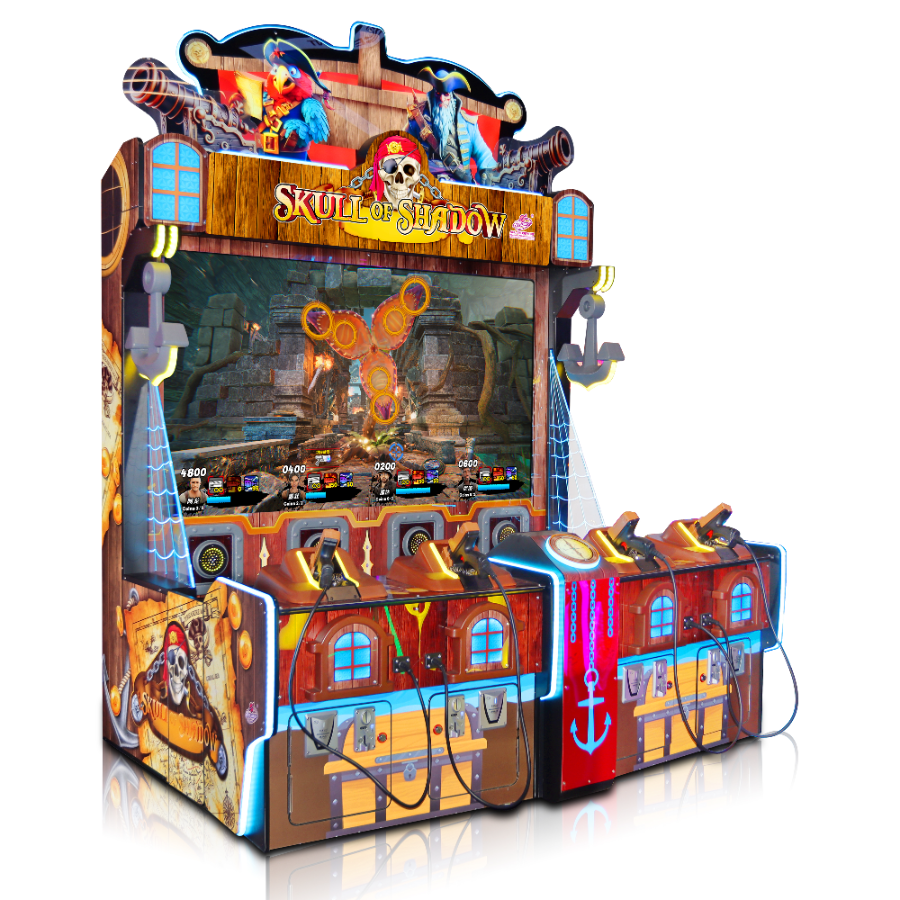झोंगशान गेम एवं मनोरंजन मेला 2020 का अवलोकन
अंतर्राष्ट्रीय खेल और मनोरंजन मेले के प्रमुख आकर्षण
2020 में, झोंगशान गेम मनोरंजन मेला चीन के डिजिटल मनोरंजन क्षेत्र के लिए एक प्रमुख केंद्र बन गया, जिसमें आर्केड गेम्स और उन आकर्षक रिडेम्पशन सिस्टम में हो रहे नए अद्यतनों को प्रदर्शित किया गया। उद्योग के बड़े नामों ने अपनी नवीनतम सिम्युलेटर तकनीक पेश की, विशेष रूप से तब जब गुआंगडॉन्ग में 2019 से 2023 के बीच प्रत्येक वर्ष इलेक्ट्रॉनिक मनोरंजन में निवेश लगभग 15% बढ़ा। इसी समय झोंगशान अंतर्राष्ट्रीय संस्कृति एवं पर्यटन उद्योग मेला भी आयोजित हुआ, जिसने गेमिंग और पर्यटन दोनों क्षेत्रों के लोगों को एक साथ लाया। इस दोहरे आयोजन ने वास्तव में यह उजागर किया कि ये उद्योग एक-दूसरे में विलय करना शुरू कर दिए हैं, जिससे झोंगशान मनोरंजन और यात्रा अनुभवों को जोड़ने के लिए एक महत्वपूर्ण स्थान के रूप में उभरा है।
कार्यक्रम कार्यक्रम (28–30 नवंबर, 2020) और स्थल: चाइना झोंगशान कन्वेंशन सेंटर
तीन दिन तक चलने वाला प्रदर्शनी झोंगशान शहर के दो प्रमुख स्थलों - चाइना झोंगशान कन्वेंशन सेंटर और न्यू वर्ल्ड इंटरनेशनल एक्ज़िबिशन एंड कन्वेंशन सेंटर में आयोजित हुई। इन दिनों के दौरान, भाग लेने वालों के बीच लगभग 350 बिज़नेस-टू-बिज़नेस मीटिंग्स आयोजित की गईं। स्थानीय सरकारी अधिकारियों और 130 से अधिक कंपनियों को कवर करने वाले विभिन्न उद्योग समूहों के समर्थन से, इस समागम ने वास्तव में यह उजागर किया कि झोंगशान अभी भी आनंदपूर्ण उपकरण बनाने के लिए दुनिया भर में शीर्ष स्थान क्यों बना हुआ है। इस आयोजन ने अन्य क्षेत्रों की तुलना में क्षेत्र के उत्पादन क्षेत्र को कितना नवाचार और प्रतिस्पर्धी बनाता है, इस पर वैश्विक स्तर पर काफी प्रकाश डाला।
चीन के गेमिंग और मनोरंजन उद्योग में विकास के रुझान
गुआंगडोंग प्रांत में इलेक्ट्रॉनिक और आर्केड गेम्स बाजार का विस्तार
2023 में, चीन ऑडियो वीडियो और डिजिटल प्रकाशन संघ की रिपोर्ट के अनुसार, गुआंगडॉन्ग ने चीन भर में बनाए गए सभी गेमिंग धन का लगभग 32 प्रतिशत आकर्षित किया। वहाँ के आर्केड व्यवसायों ने पिछले वर्ष की तुलना में अपने बाजार में लगभग 14% की वृद्धि देखी, जो इस बात के कारण थी कि लोगों को स्थानीय भावना वाले खेल चाहिए थे जो पारंपरिक मज़े को नए डिजिटल लाभों के साथ जोड़ते हों। 2020 के झोंगशान गेम मनोरंजन प्रदर्शनी पर नज़र डालने से समझ में आता है कि ऐसा क्यों हुआ। अपना सामान प्रदर्शित करने वाली कंपनियों में से आधे से अधिक के पास परिवारों के साथ समय बिताने के लिए विशेष रूप से डिज़ाइन किए गए इन आकर्षक एआई नियंत्रित मशीनें और गति सेंसर वाले खेल थे। यह इस बात को दर्शाता है कि गुआंगडॉन्ग पारंपरिक खेल बेचने के बजाय लोगों को एक साथ लाने वाले अनुभव बनाने की ओर वास्तव में कैसे केंद्रित हो रहा है।
इंटरैक्टिव रिडेम्पशन सिस्टम और आर्केड गेम समाधानों के लिए मांग में तेजी
महामारी समाप्त होने के बाद से इंटरैक्टिव रिडेम्पशन प्रणालियों की मांग में काफी वृद्धि हुई है, जिसमें लगभग 27% की छलांग आई है क्योंकि गेम ऑपरेटरों ने ब्रांडेड सामान या डिजिटल कूपन जैसे वास्तविक इनाम प्रदान करने के तरीकों की तलाश शुरू कर दी। 2024 के बाजार विश्लेषकों का पूर्वानुमान है कि 2029 तक लगभग 11.5% की चक्रवृद्धि वार्षिक वृद्धि दर के साथ काफी मजबूत वृद्धि होगी। इसका मुख्य कारण नई तकनीकी प्रगति है जो हमने पहली बार झोंगशान एक्सपो में देखी, जहां टिकट-मुक्त क्लाउड ट्रैकिंग प्रणाली का शुभारंभ किया गया था। आज के आर्केड सेटअप भी काफी उन्नत तकनीकी हो गए हैं, जिनमें चेहरा पहचान की सुविधा और मोबाइल कनेक्शन को सीधे एकीकृत किया गया है। ये उन्नति ऑपरेटरों को वास्तविक समय में खिलाड़ियों की निगरानी करने और पहले से बेहतर काम करने वाली व्यक्तिगत जुड़ाव योजनाएं तैयार करने में सक्षम बनाती है।
खिलौने, खेल और मनोरंजन उपकरणों के लिए व्यापार मेलों की महामारी के बाद की वृद्धि
आजकल ट्रेड शो बड़े पैमाने पर वापस लौट रहे हैं। गेमिंग एक्सपो में 2023 में महामारी से पहले की तुलना में 18% की वृद्धि हुई। 2020 के झोंगशान गेम एम्यूजमेंट एक्सपो को एक उदाहरण के रूप में लें। इस कार्यक्रम ने वीआर सिम्युलेटर और उन पसंदीदा क्लॉ मशीनों जैसी चीजों के लिए लगभग 740 मिलियन डॉलर के आदेश उत्पन्न किए। इसे दिलचस्प बनाने वाली बात यह है कि इसने व्यापार करने के नए तरीकों को स्थापित करने में मदद की, जहां भौतिक प्रदर्शनियां आभासी तत्वों के साथ जुड़ जाती हैं। पूरा उद्योग इसी ऊपर की ओर बढ़ते रुझान का अनुसरण करता प्रतीत होता है। चीन के गेमिंग हार्डवेयर बाजार में 2024 में लगभग 28 बिलियन डॉलर की वृद्धि हुई, जिसका कारण मुख्य रूप से सांस्कृतिक पर्यटन को बढ़ावा देने के लिए बेहतर बुनियादी ढांचे के विकास के उद्देश्य से सरकारी समर्थन कार्यक्रम थे।
संस्कृति, पर्यटन और डिजिटल मनोरंजन का रणनीतिक एकीकरण
झोंगशान गेम एम्यूजमेंट एक्सपो सांस्कृतिक पर्यटन और डिजिटल खेल को कैसे बढ़ावा देता है
2020 के आयोजन में, हमने सीधे तौर पर देखा कि डिजिटल मनोरंजन की चीजें वास्तव में सांस्कृतिक पर्यटन को कैसे बढ़ावा देती हैं और लोगों को डिजिटल खेलों के प्रति उत्साहित करती हैं। इन रोचक सिम्युलेटर सवारियों और इंटरैक्टिव रिडेम्पशन प्रणालियों ने कहानियों को जीवंत कर दिया, जिससे वास्तविक स्थानों को आभासी साहसिक कार्यों से जोड़ा गया। उदाहरण के लिए गुआंगडोंग में, वीआर सेटअप लोगों को प्रांत के प्राचीन स्थलों के पुनर्निर्मित संस्करणों का पता लगाने की अनुमति देते हैं, जहाँ वे ऐतिहासिक घटनाओं के साथ वास्तव में इंटरैक्ट कर सकते हैं। काफी शानदार चीज। यह पूरा मिश्रण चीन की स्मार्ट पर्यटन योजनाओं के साथ बिल्कुल मेल खाता है। आर्केड शैली के खेल अब सिर्फ बच्चों के लिए नहीं हैं—वे संस्कृति के साथ गहरे संबंध बनाने में मदद कर रहे हैं, साथ ही उन पर्यटकों के लिए गंतव्यों को अधिक आकर्षक बना रहे हैं जो सामान्य दर्शनीय स्थलों से परे कुछ चाहते हैं।
थीम पार्क उपकरण, सिम्युलेटर सवारियों और क्षेत्रीय पर्यटन विकास के बीच सहयोग
पर्यटन स्थलों पर मनोरंजन तकनीक के जुड़ने से हाल के समय में काफी बदलाव आया है। पिछले महीने के ट्रेड शो में, कंपनियों ने उच्च गति रेसिंग सिम्युलेटर और आभासी वास्तविकता वाले कोस्टर जैसे विभिन्न प्रकार के सिम्युलेटर आकर्षण प्रदर्शित किए, जो लोगों को लूप में से उड़ते हुए महसूस कराते हैं। इस आयोजन के बाद आए आंकड़े भी काफी प्रभावशाली हैं। इस तरह की तकनीक लगाने वाले स्थानों ने दोबारा आने वाले लोगों की संख्या में लगभग 40 प्रतिशत की वृद्धि देखी। यह तो तर्कसंगत है क्योंकि जब लोग इन अनुभूति-पूर्ण अनुभवों में खींचे चले आते हैं, तो वे आमतौर पर होटलों में अधिक समय तक रुकते हैं और आसपास के ऐतिहासिक स्थलों का भी अधिक समय तक आनंद लेते हैं।
अनुभूति-पूर्ण अनुभवों और अगली पीढ़ी के सिम्युलेटर मनोरंजन इकाइयों में नवाचार
इस कार्यक्रम में एआई संचालित क्वेस्ट सिस्टम और मिश्रित वास्तविकता वाले खेल के मैदान जैसी कई रोमांचक नवाचार प्रस्तुति की गई, जो आभासी तत्वों को भौतिक स्थानों के साथ जोड़ते हैं। एक विशेष रूप से दिलचस्प केस स्टडी एक बहु-उपयोगकर्ता वीआर बैटल गेम से आई, जो खिलाड़ियों को पारंपरिक लिंगनान वास्तुकला शैलियों के बारे में सिखाता है। अब यह गेम गुआंगडोंग प्रांत के विभिन्न धरोहर स्थलों पर दिखाई दे रहा है, जो धीमे महीनों के दौरान आगंतुकों को आकर्षित करने में मदद कर रहा है। इंटरैक्टिव अनुभव की नई पीढ़ी बुद्धिमान पर्यटन ऐप्स का उपयोग करती है जो यात्रियों को देखना क्या चाहते हैं, उसके अनुसार पर्यटन मार्गों को ढालती हैं। जो वास्तव में अद्भुत है, वह यह है कि ऐसे आकर्षण ऐतिहासिक क्षेत्रों में घूमते समय लोगों के साथ मज़ेदार गेमप्ले और वास्तविक सांस्कृतिक शिक्षा को कैसे मिला देते हैं।
झोंगशान एक्सपो 2020 से प्रभाव और सफलता की कहानियाँ
वैश्विक प्रदर्शक भागीदारी और प्रमुख उत्पाद लॉन्च
2020 झोंगशान गेम एवं मनोरंजन एक्सपो में 15 विभिन्न देशों के लगभग 320 प्रदर्शकों ने भाग लिया, जहाँ नवीनतम आर्केड गेम्स से लेकर वीआर सिमुलेटर और इंटरैक्टिव रिडेम्पशन सिस्टम तक के उत्पादों का प्रदर्शन किया गया। पिछले वर्ष की तुलना में आयोजन स्थल लगभग 40% तक बढ़ गया था, जिससे आगंतुकों को गति-आधारित सिमुलेटर का सीधा अनुभव लेने और यह देखने का अवसर मिला कि पुरस्कार वितरण प्रणालियों में एआई कैसे काम करता है। जापानी कंपनियों ने भी दिलचस्प चीजें प्रदर्शित कीं - उनकी हाइब्रिड आर्केड रिडेम्पशन मशीनें लगभग 25% अधिक खिलाड़ियों को पहले की तुलना में वापस लाने में सहायता करती हैं। इस बीच यूरोपीय कंपनियां ऐसे मेला उपकरण प्रदर्शित कर रही थीं जिनमें एकाधिक आगंतुकों के दौरान ग्राहक वफादारी डेटा को ट्रैक करने के लिए आईओटी तकनीक लगी हुई थी।
झोंगशान की स्थानीय अर्थव्यवस्था और व्यापार अवसरों पर व्यापारिक प्रभाव
प्रदर्शनी समाप्त होने के बाद, सर्वेक्षण के परिणामों में यह संकेत मिला कि लगभग दो-तिहाई आपूर्तिकर्ताओं को गुआंगडोंग प्रांत में ही वितरण समझौते मिले। उनमें से लगभग 42% ने दक्षिणपूर्व एशिया में अवसरों की खोज शुरू कर दी। इस कार्यक्रम ने काफी महत्वपूर्ण आय भी अर्जित की - स्थानीय होटलों और रेस्तरां को केवल पर्यटकों से लगभग 93 लाख डॉलर प्राप्त हुए, जो पिछले वर्ष की तुलना में 27% की मजबूत वृद्धि है। इस बीच पीछे के दृश्य में एक अन्य घटना भी चल रही थी। स्थानीय कारखाना मालिकों ने ओवरसीज कंपनियों से सिक्का संचालित खेलों के उत्पादन के लिए सामान्य से दोगुनी मांग आने की सूचना दी, जो केवल सामान्य मशीनें नहीं थीं; कई ने विशेष रूप से उन मॉडल्स के बारे में पूछा जिनमें संवर्धित वास्तविकता (ऑगमेंटेड रियलिटी) तकनीक हो जिसे मनोरंजन केंद्रों में परिवार साथ मिलकर आनंद ले सकें।
केस अध्ययन: बी2बी जुड़ाव को बढ़ावा देने वाली इंटरैक्टिव रिडेम्पशन प्रणाली
पिछले साल एक्सपो में प्रदर्शित आरएफआईडी रिडेम्पशन प्रणालियों को लागू करने के केवल छह महीने बाद, गुआंगशी में एक आर्केड व्यवसाय को निवेश पर लगभग 180% का उत्कृष्ट रिटर्न मिला। पुरस्कारों के लिए उनकी सूची लागत लगभग एक तिहाई कम हो गई, जबकि खिलाड़ियों ने प्रत्येक बार खेलने पर लगभग 4.80 डॉलर खर्च किए, जो अधिकांश आर्केड द्वारा देखे गए ($3.20 सामान्य है) से अधिक है। इसमें और क्या दिलचस्प है? ऐसी प्रणाली प्राप्त करने के बारे में पूछे गए प्रश्नों में से आधे से अधिक पारंपरिक आर्केड के बाहर के स्थानों से आए थे। हम शॉपिंग सेंटर, हवाई अड्डे के टर्मिनल, यहां तक कि कुछ अप्रत्याशित स्थानों की बात कर रहे हैं जहां लोग घूमते हैं और विमानों को उड़ते देखने के अलावा कुछ मज़ेदार करना चाहते हैं।
भविष्य की दृष्टि: चीन में मनोरंजन एक्सपो का विकास
एकीकृत मनोरंजन, संस्कृति और पर्यटन मॉडल की ओर परिवर्तन
हाल के दिनों में चीन के मनोरंजन प्रदर्शनि दृश्य ने मज़े, संस्कृति और यात्रा को एक विशेष कुछ में मिला दिया है। 2024 के आंकड़ों को देखें तो लगभग दो तिहाई बड़े व्यापारिक कार्यक्रमों ने वास्तव में ऐसे क्षेत्र आरक्षित किए हैं जहाँ आगंतुक उन शानदार वीआर राइड्स के ठीक बगल में विभिन्न क्षेत्रों की पारंपरिक शिल्पकला और धरोहर देख सकते हैं। यह तब समझ में आता है जब हम यह ध्यान में रखें कि आजकल सरकार सांस्कृतिक पर्यटन पर कितना जोर दे रही है—उनकी नवीनतम रिपोर्ट के अनुसार यह एक विशाल 740 बिलियन डॉलर के उद्योग में बढ़ गया है। उदाहरण के लिए, एशिया एम्यूजमेंट एंड एट्रैक्शंस एक्सपो लें—उन्होंने लगभग अपने प्रदर्शनी स्थान का एक तिहाई हिस्सा उन कंपनियों के लिए आरक्षित कर दिया है जो सांस्कृतिक कहानियों और पात्रों को लाइसेंस के तौर पर लेना चाहती हैं। थीम पार्क भी इस तरह की चीज़ों में चतुर बन रहे हैं, पुरानी लोककथाओं को आधुनिक आकर्षणों के साथ मिलाते हुए जो अभी भी व्यावसायिक रूप से उचित साबित होते हैं।
आर्केड और मनोरंजन प्रदर्शनियों के भविष्य को आकार देने वाली उभरती प्रौद्योगिकियाँ
तकनीकी उन्नति के साथ एक्सपो का दृश्य लगातार बदलता रहता है। 2025 के लिए लगभग तीन-चौथाई प्रदर्शक उन फैंसी AR आर्केड कैबिनेट्स के साथ-साथ इंटरैक्टिव रिडेम्पशन सिस्टम प्रदर्शित करना चाहते हैं। GTI चाइना एक्सपो 2025 के आंकड़ों को देखते हुए, 2023 की तुलना में इमर्सिव सिम्युलेटर में काफी उछाल आया है - वास्तव में लगभग 40% अधिक। इससे मिश्रित वास्तविकता गेमिंग सेटअप में वास्तविक रुचि रखने वाले लगभग 1.5 लाख लोग आए। इस बीच, ऑपरेटरों के बीच AI अनुकूलन उपकरण लोकप्रिय हो रहे हैं। ये उन्हें ऐसे आर्केड अनुभव बनाने की अनुमति देते हैं जो खिलाड़ियों के वास्तविक समय में इंटरैक्ट करने के साथ-साथ अनुकूलित होते रहते हैं। कुछ बाजार विश्लेषकों का मानना है कि GTI एक्सपो मार्केट रिपोर्ट के नवीनतम आंकड़ों के अनुसार यह खंड 2027 तक लगभग 22% प्रति वर्ष की दर से बढ़ सकता है।
थीम पार्क डिजाइन में व्यावसायीकरण और सांस्कृतिक प्रामाणिकता का संतुलन
हाल के दिनों में हमने जितने भी तकनीकी सुधार देखे हैं, अधिकांश वास्तुकार आकर्षणों के डिज़ाइन करते समय स्थानीय विशेषता बनाए रखने के बारे में अभी भी गंभीरता से सोचते हैं। एक हालिया सर्वेक्षण में पता चला कि लगभग दो तिहाई वास्तुकार क्षेत्रीय पहचान बनाए रखने को लेकर चिंतित हैं। पिछले साल झोंगशान एक्सपो में, एक प्रतियोगिता थी जिसमें डिज़ाइनरों को अपनी भविष्यवादी राइड अवधारणाओं में पारंपरिक लिंगनान वास्तुकला को शामिल करना था। परिणाम? पिछले वर्षों की तुलना में लगभग बीस प्रतिशत अधिक प्रस्तुतियों ने सांस्कृतिक प्रामाणिकता पर ध्यान केंद्रित किया। और ऐसा पता चलता है कि लोग वास्तव में यही चाहते हैं। 2024 के नवीनतम उपभोक्ता मनोरंजन सूचकांक के अनुसार, सर्वेक्षण किए गए लोगों में से ठीक आधे से अधिक ऐसे आकर्षणों की तलाश करते हैं जो आधुनिक खेल तत्वों को शामिल करते हुए इतिहास से कहानियाँ सुनाते हैं। ऐसा लगता है कि लोग अब सिर्फ मज़े की तलाश नहीं कर रहे, वे ऐसे अनुभव चाहते हैं जो उन्हें किसी बड़ी चीज़ से जोड़ें।
झोंगशान गेम एवं मनोरंजन एक्सपो के बारे में पूछे जाने वाले प्रश्न
झोंगशान गेम एवं मनोरंजन एक्सपो क्या है?
झोंगशान गेम एवं मनोरंजन एक्सपो चीन के डिजिटल मनोरंजन क्षेत्र का एक प्रमुख आयोजन है, जो खेलों और मनोरंजन में नवाचार को प्रदर्शित करने के लिए प्रौद्योगिकी, संस्कृति और पर्यटन को एक साथ लाता है।
2020 झोंगशान गेम एवं मनोरंजन एक्सपो कब आयोजित हुआ था?
एक्सपो 28–30 नवंबर, 2020 को झोंगशान शहर में आयोजित हुआ था।
एक्सपो का क्या महत्व है?
एक्सपो ने डिजिटल मनोरंजन के सांस्कृतिक पर्यटन के साथ एकीकरण पर प्रकाश डाला और दर्शाया कि मनोरंजन प्रौद्योगिकी का विकास कैसे हो रहा है।
एक्सपो स्थानीय अर्थव्यवस्था को कैसे प्रभावित करता है?
एक्सपो अंतरराष्ट्रीय प्रदर्शकों को आकर्षित करके, व्यापार समझौतों और पर्यटन को सुविधाजनक बनाकर झोंगशान की अर्थव्यवस्था में महत्वपूर्ण योगदान देता है, जिससे स्थानीय राजस्व में वृद्धि होती है।


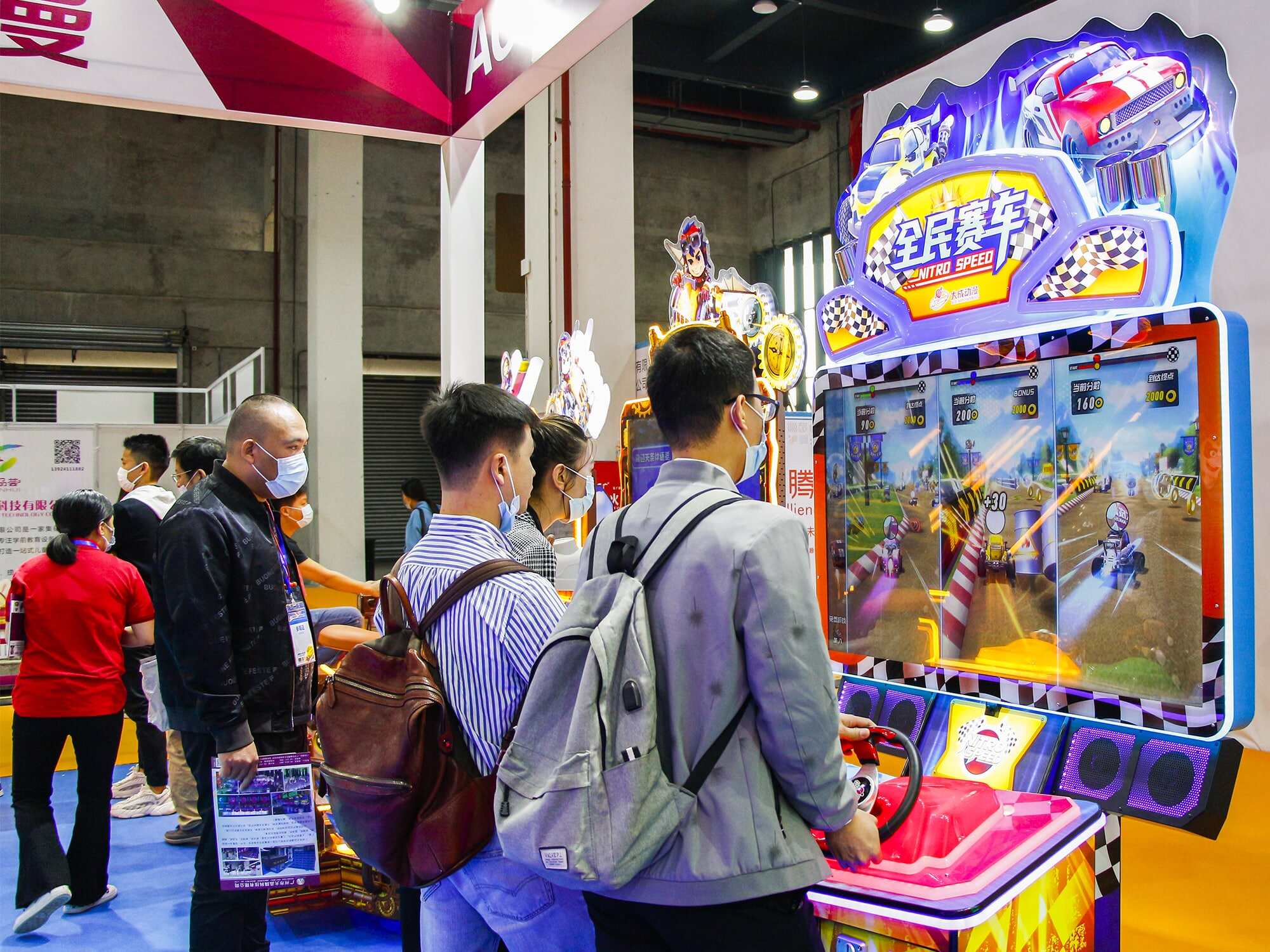
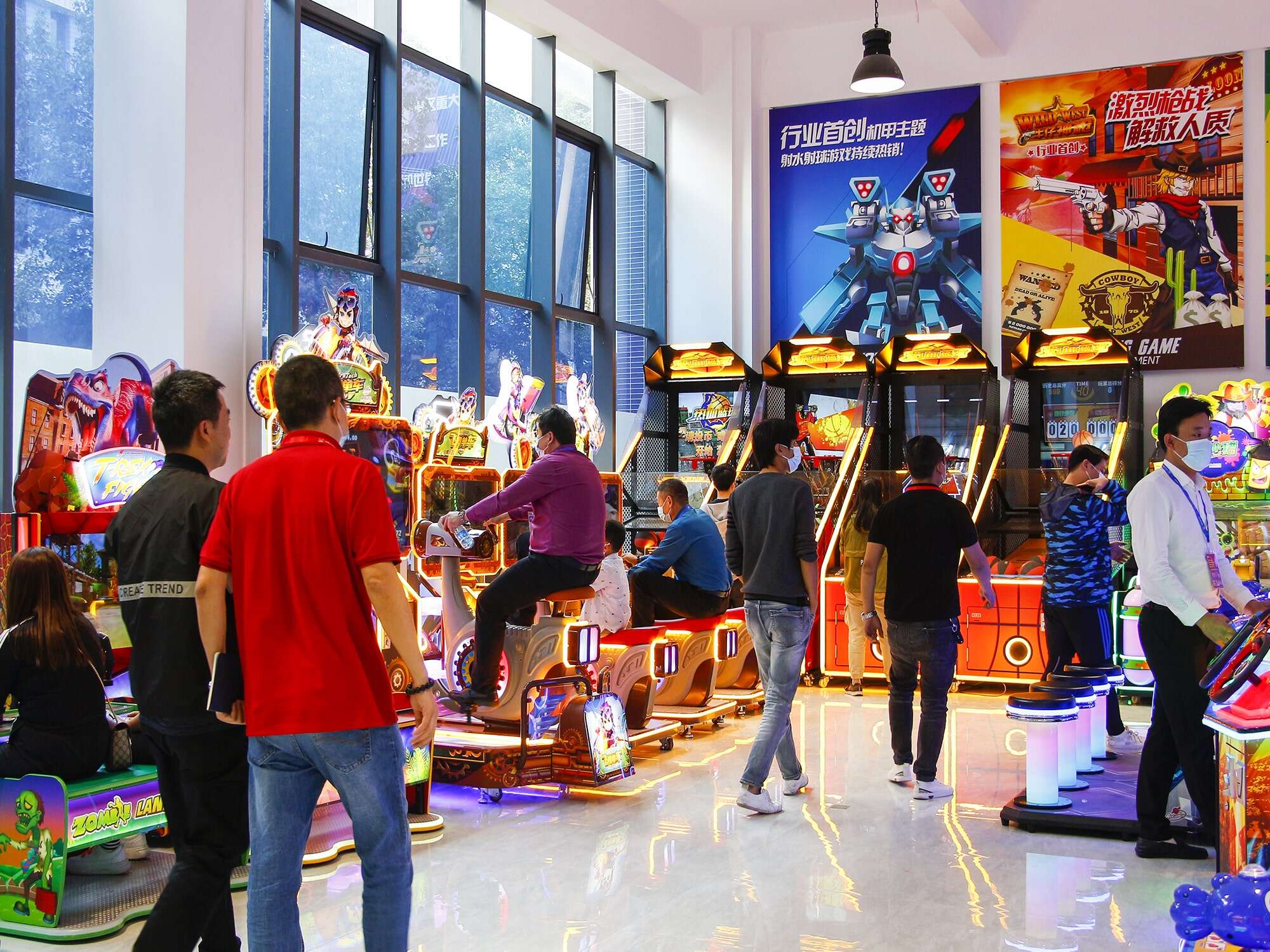
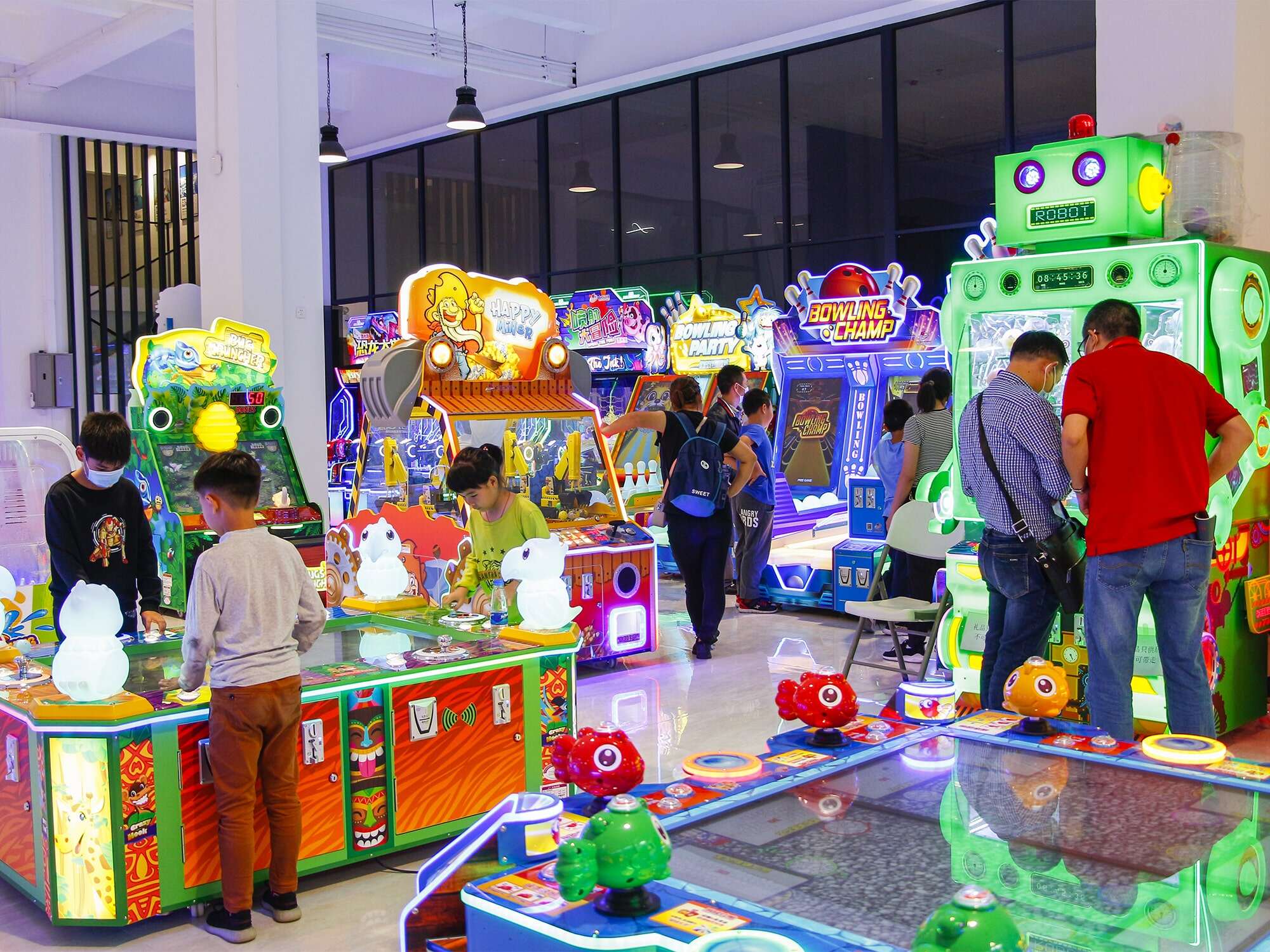
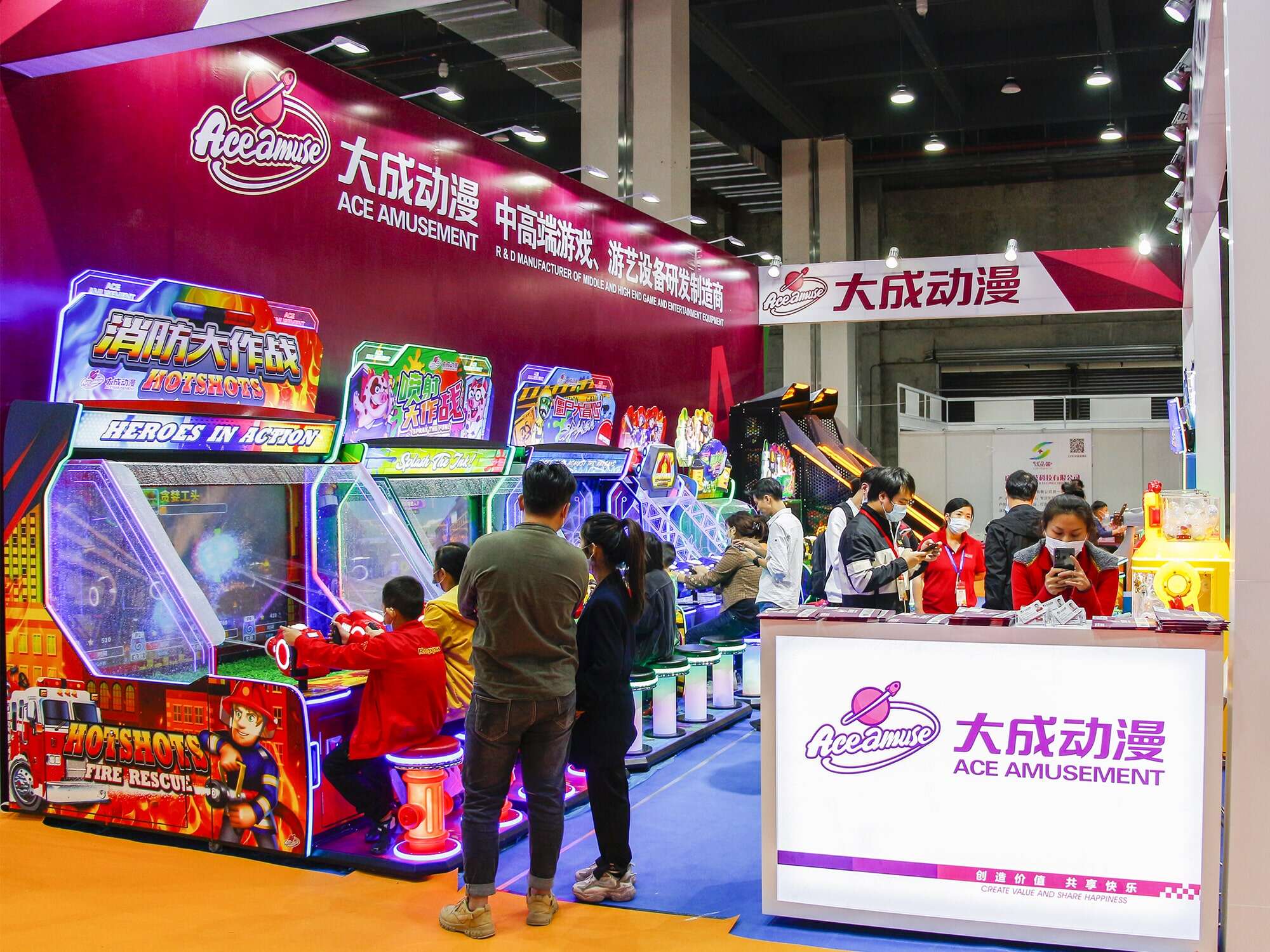
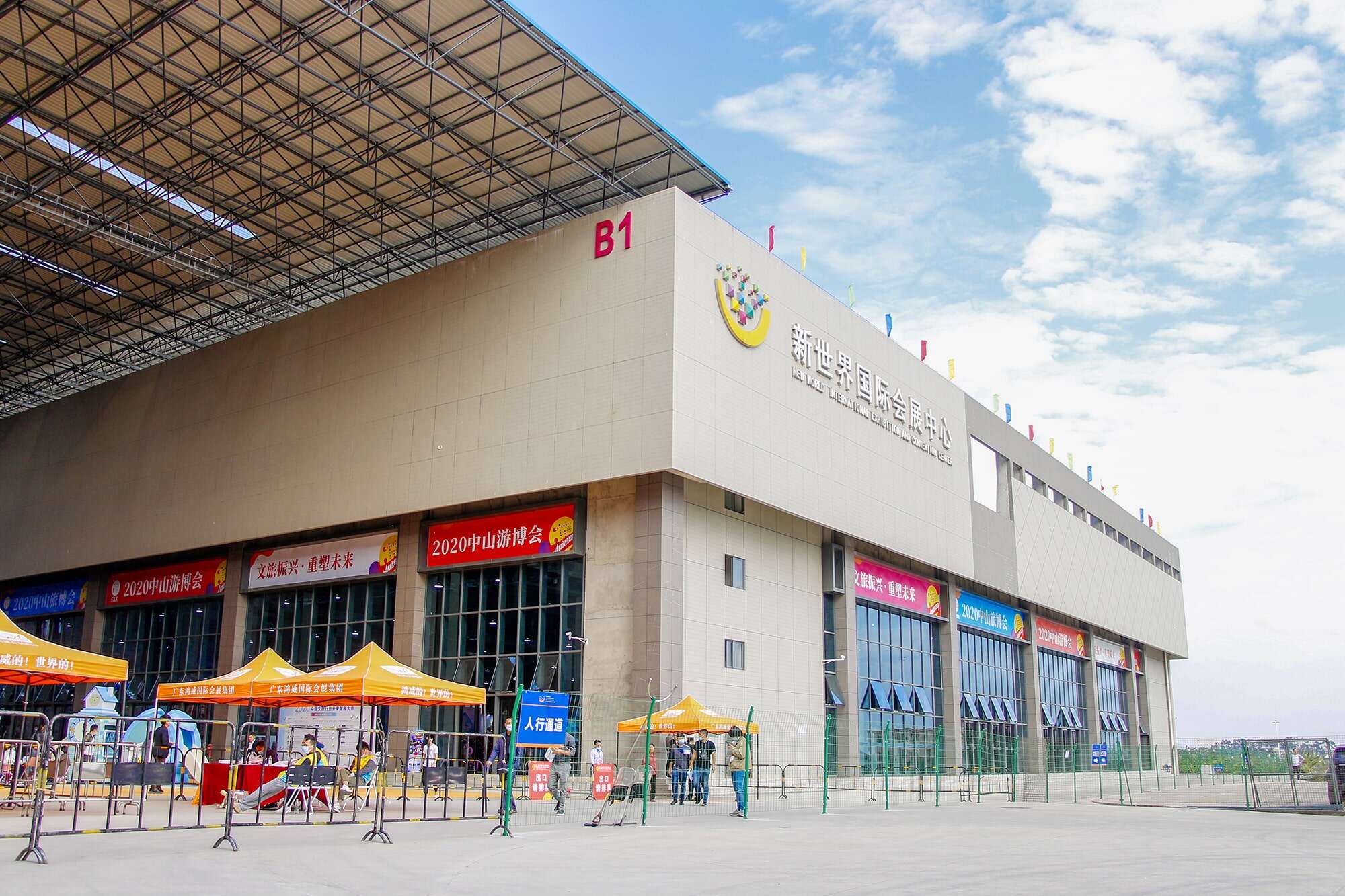

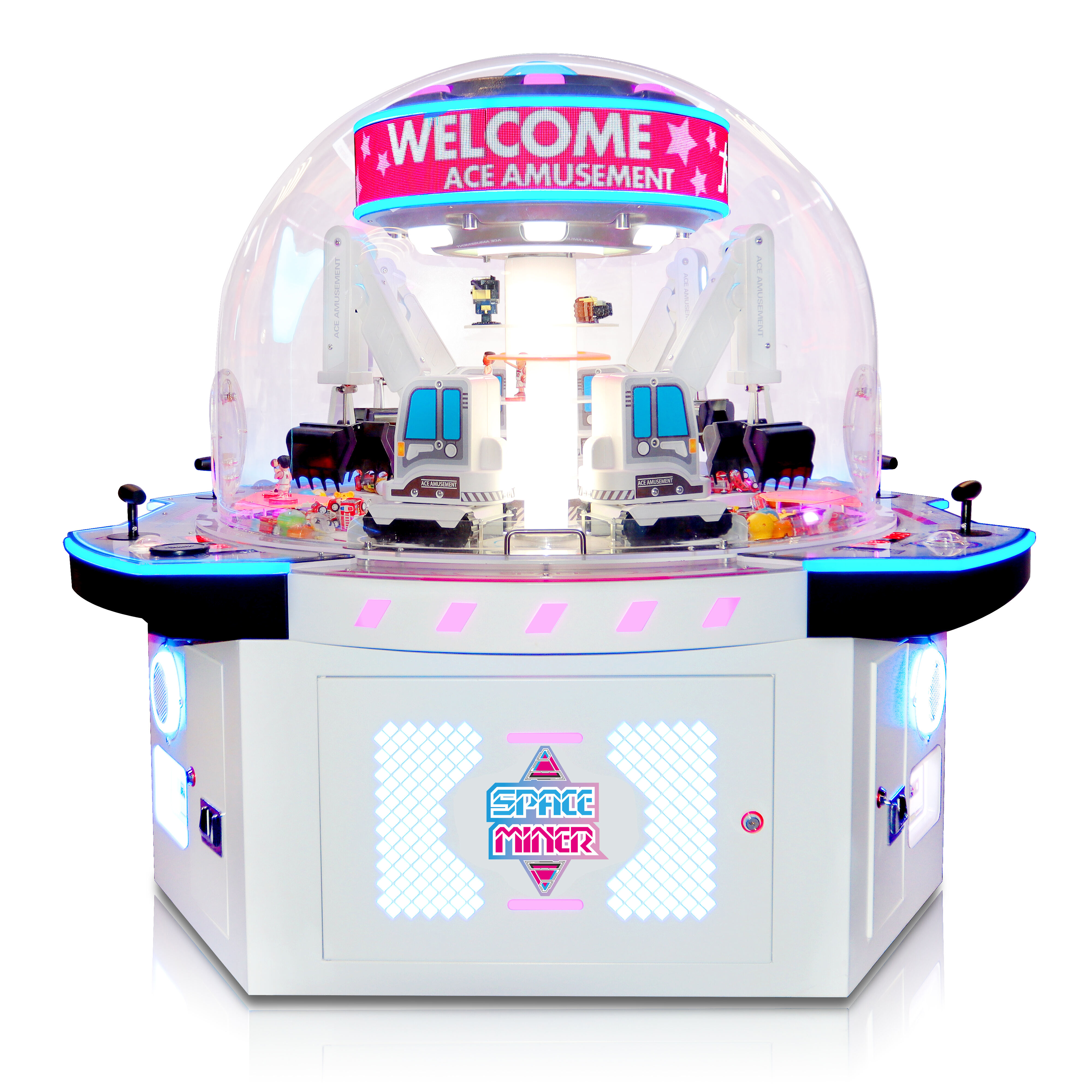
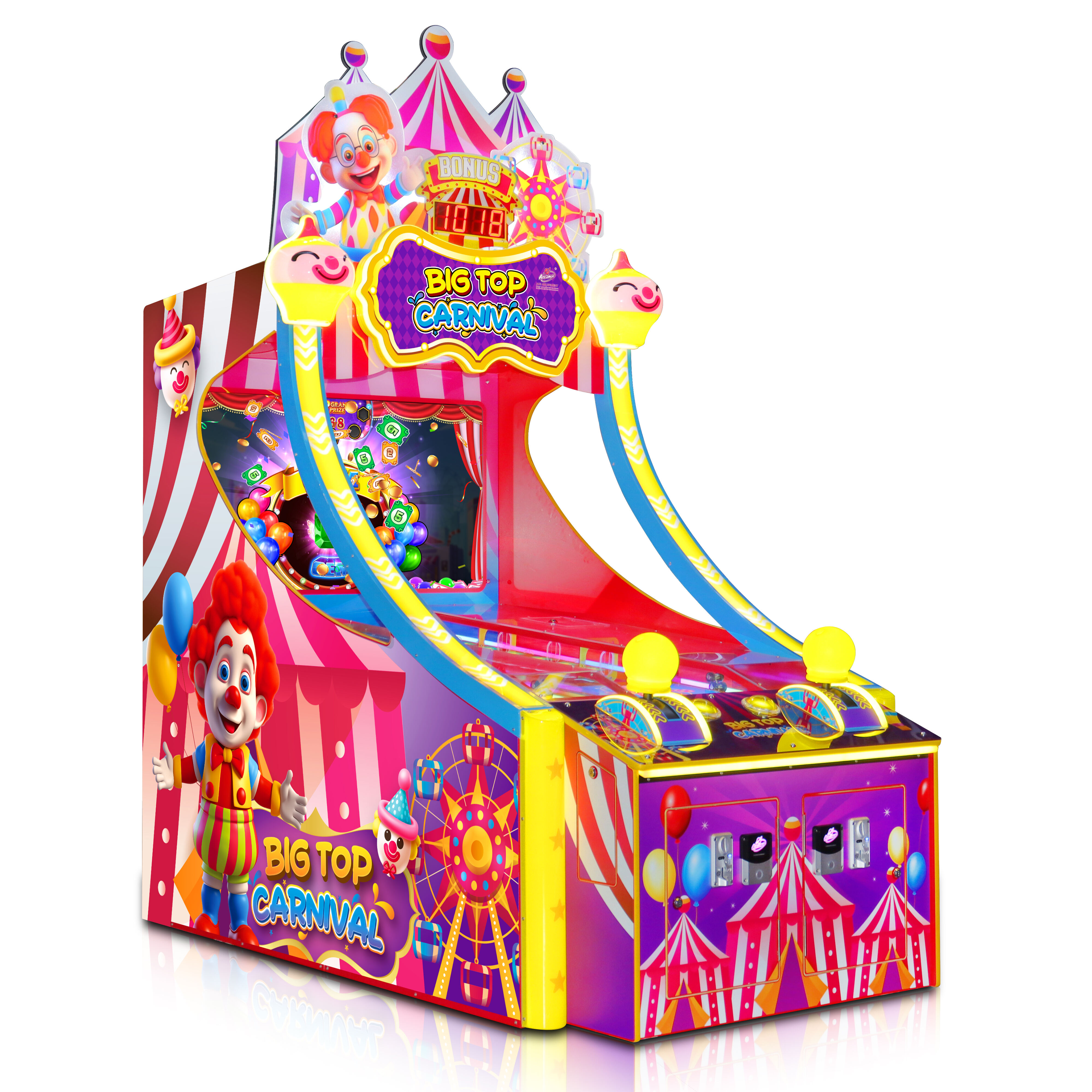
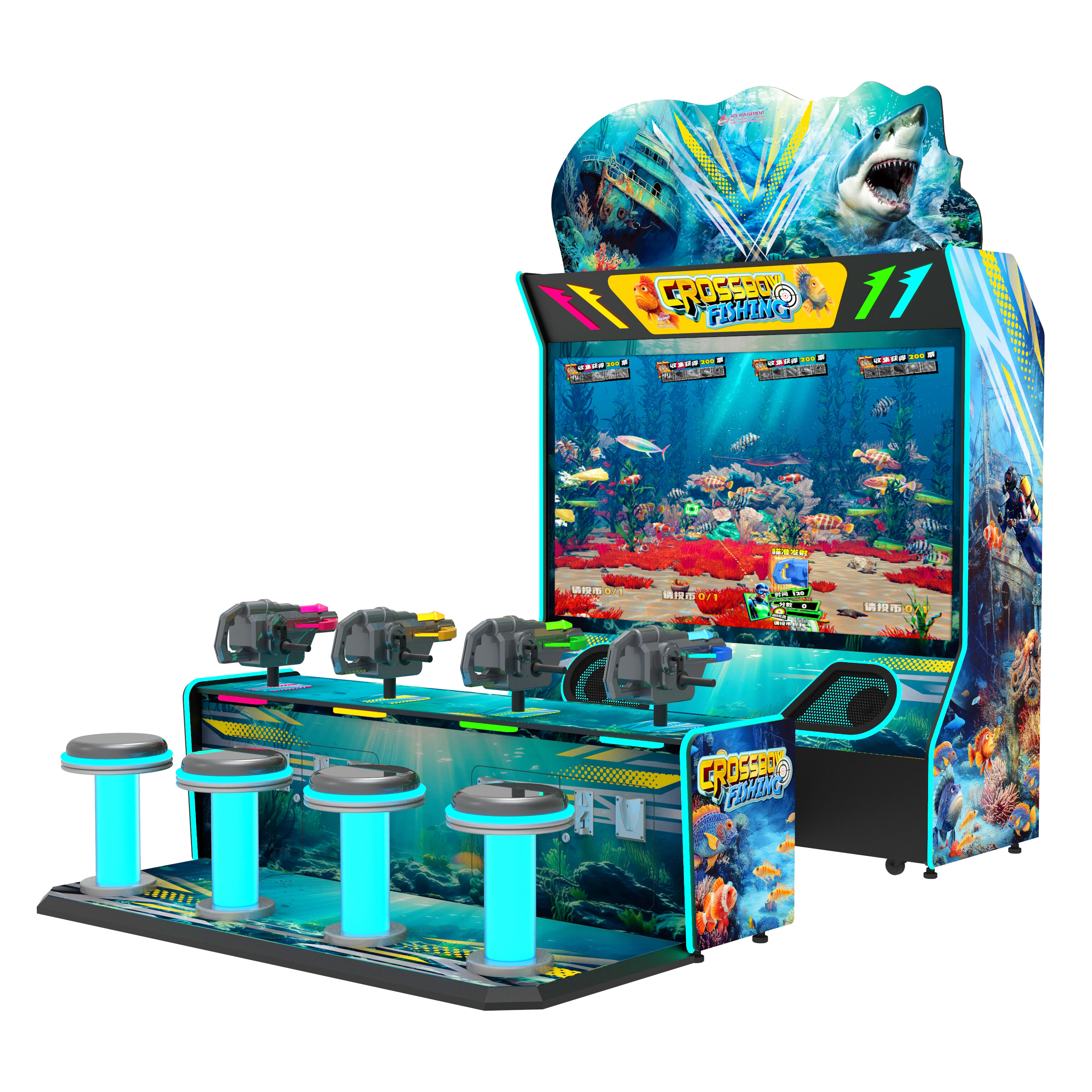
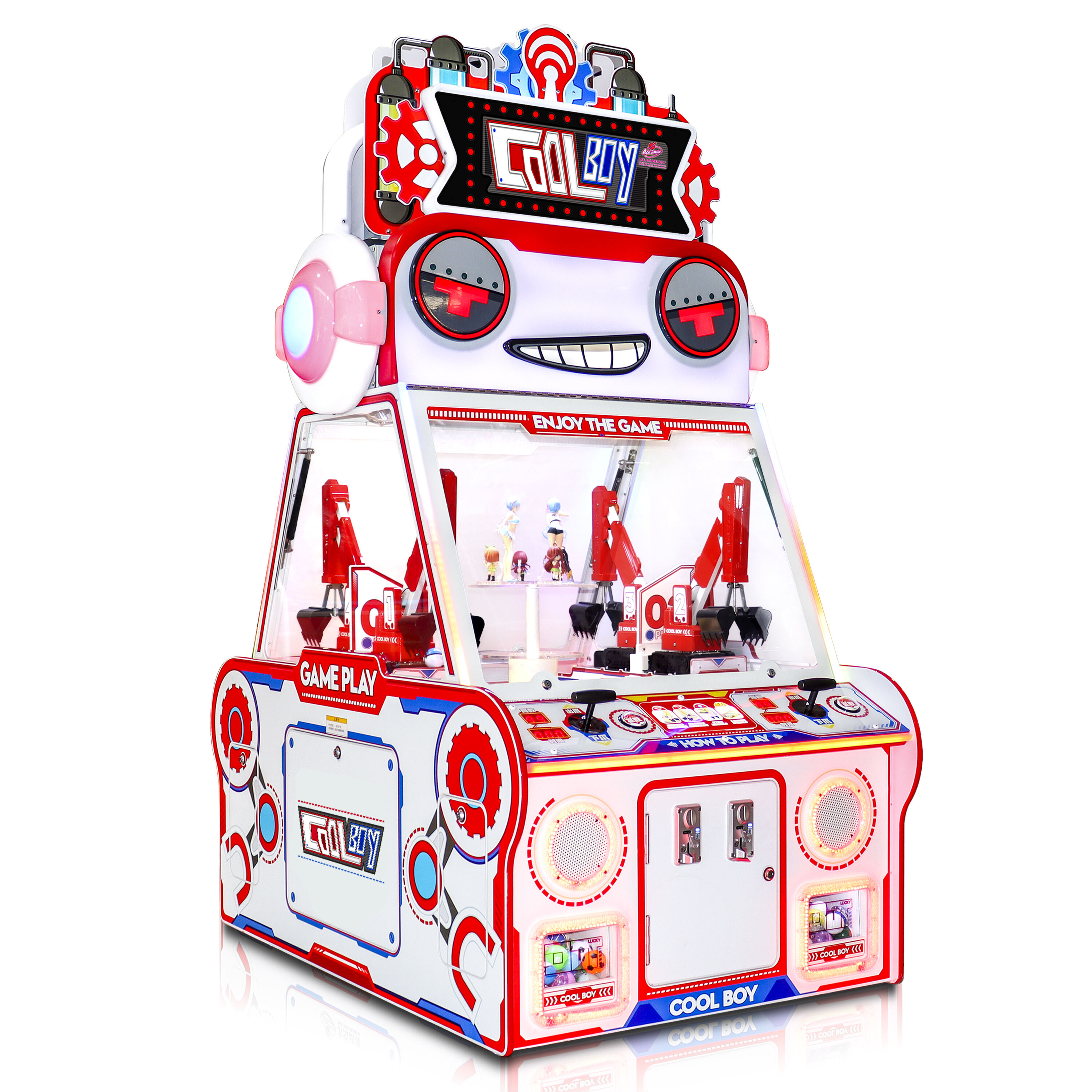

 हॉट न्यूज
हॉट न्यूज